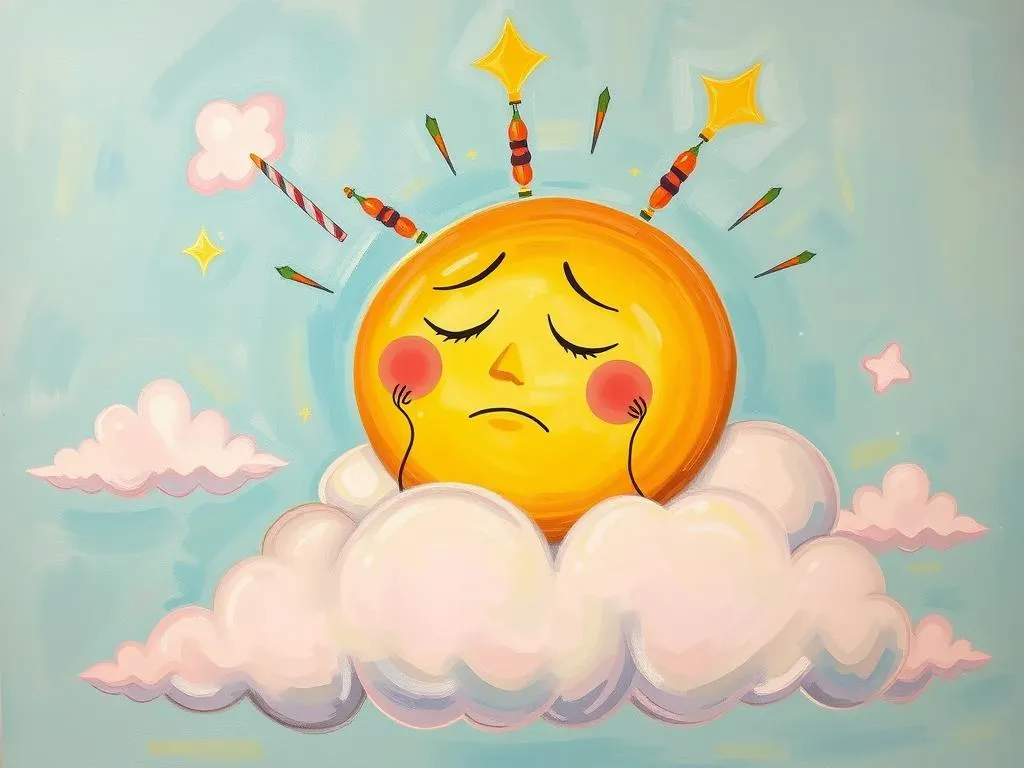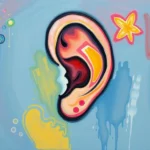
Dreams have long been a source of fascination, offering a glimpse into our subconscious minds. Among the myriad themes that surface in our nightly escapades, stress stands out as a prevalent and often unsettling motif. People from all walks of life experience stress in their dreams, prompting many to wonder about the symbolism behind these visions. The relevance of such dreams extends beyond mere intrigue; they can serve as vital indicators of our emotional states, guiding us toward greater self-awareness and understanding.
In this exploration of the dream symbols of stress, we will delve into their meanings, examine various scenarios, and uncover how these dreams resonate with our waking lives. By reflecting on our experiences, we can gain valuable insights into how stress manifests in our subconscious and how we can address it in our daily lives.
Symbolism and Meaning
When it comes to stress-related dreams, a variety of symbols frequently emerge, each carrying its own significance. A common symbol is chasing. When you dream of being pursued, it often reflects feelings of anxiety or pressure in your waking life. The identity of the pursuer may vary, representing different stressors, such as work deadlines or personal relationships. In this context, the act of running away symbolizes your desire to escape from the overwhelming burdens you face.
Another frequent symbol is falling. Dreams of falling can evoke a sense of loss of control or fear of failure. This is particularly poignant in situations where you feel unsupported or unprepared in real life. Falling in a dream may not just represent physical instability but can also signify emotional or psychological distress, reflecting your current state of mind.
Confusion is also a prevalent theme in stress dreams. Dream scenarios where you find yourself lost or unable to find your way often highlight feelings of being overwhelmed or uncertain. This sense of confusion can stem from life transitions, such as changing jobs or navigating complex relationships. In this light, the disorientation experienced in dreams can mirror the chaos that surrounds you in waking life.
Additionally, the symbol of water often appears in dreams related to stress. Water can represent emotions, with turbulent waters signifying overwhelming feelings or situations. If you dream of drowning or being swept away by water, it indicates that you may be feeling submerged by your emotions. On the other hand, calm waters might suggest a more balanced emotional state, providing a contrast to the chaos of stress.
Moreover, the symbolism of time can play a significant role in stress-related dreams. Dreams where you find yourself late or racing against the clock often reflect anxiety about time management or missed opportunities. This can be particularly relevant for those feeling overwhelmed by responsibilities and deadlines, highlighting the importance of finding balance in one’s life.
Key Scenarios and Variations
As we examine the key symbols associated with stress, it’s essential to consider the scenarios in which they appear. The context of a dream can dramatically alter its interpretation. For instance, a dream in which you are being chased could shift in meaning depending on who or what is pursuing you. If the pursuer is an authority figure, it might symbolize work-related stress or fear of judgment. Conversely, if it’s a loved one, it could reflect unresolved issues in a personal relationship.
Another common scenario involves being unprepared for an important event, such as a presentation or an exam. This dream often signifies feelings of inadequacy or fear of failure. The lack of preparation in the dream mirrors the underlying anxiety about not meeting expectations, whether they are self-imposed or derived from external pressures. In this case, the dream may be urging you to confront and address your feelings of unpreparedness in real life.
Dreams of traffic jams or being stuck in a crowd can also highlight stress. These scenarios often represent feelings of being overwhelmed by external pressures or societal expectations. When you find yourself unable to move forward in the dream, it may reflect a sense of stagnation or frustration in your waking life. The slow pace can symbolize the feeling of being trapped in responsibilities, unable to break free from the cycle of stress.
Interestingly, dreams about losing control of a vehicle can carry powerful meanings. If you dream that you are unable to steer or brake, it may indicate feelings of helplessness in your waking life. This could relate to a job that feels overwhelming or a relationship that is spiraling out of control. The vehicle often represents your life’s direction, and losing control signifies a fear of not being able to navigate your path effectively.
Additionally, variations in the setting of your stress dreams can alter their meanings. For example, dreaming of being in a familiar place, like your childhood home, may bring a sense of nostalgia but can also highlight unresolved issues from your past that are causing current stress. In contrast, being in an unfamiliar environment can amplify feelings of anxiety and confusion, signaling a need to adapt to new circumstances in your life.
Real-Life Connections and Takeaways
Understanding the symbols and scenarios that play out in our stress dreams can provide significant insights into our waking lives. Often, these dreams serve as mirrors, reflecting our emotional states and the challenges we face. By becoming aware of these connections, we can take proactive steps to address our stressors.
One of the most practical approaches is to engage in self-reflection. After experiencing a stress-related dream, take a few moments to journal your thoughts and feelings. Consider what stressors may have contributed to the dream. Is there a particular situation in your life that feels overwhelming? Writing about your experiences can help clarify your emotions and empower you to confront them.
Furthermore, practicing stress-management techniques can also be beneficial. Incorporating mindfulness practices, such as meditation or deep-breathing exercises, can help calm your mind and reduce anxiety. These techniques not only aid in managing stress but can also improve your overall sleep quality, leading to more restful and rejuvenating dreams.
Establishing boundaries in your waking life is another essential takeaway. If you find that work or personal responsibilities are encroaching on your time and energy, consider reassessing your commitments. Saying no or delegating tasks can significantly reduce feelings of being overwhelmed, allowing you to regain control over your life.
Additionally, seeking support from friends, family, or a therapist can be invaluable. Sometimes, talking about your feelings and experiences with someone else can provide new perspectives and solutions. Engaging in open conversations can help you feel less isolated in your stress and empower you to navigate challenges more effectively.
Lastly, consider the importance of self-care. Make time for activities that bring you joy and relaxation. Whether it’s spending time in nature, engaging in a hobby, or simply unwinding with a good book, nurturing your well-being can help counterbalance the stressors you encounter.
In conclusion, the dream symbols of stress illuminate the complexities of our emotional lives. By understanding the meanings behind these symbols and the scenarios in which they manifest, we can better connect our dreams to our waking experiences. Reflecting on our dreams encourages us to confront our stressors, promote self-awareness, and foster personal growth. As you continue to explore your dreams, remember that they hold the potential to guide you toward a more balanced and fulfilling life.







